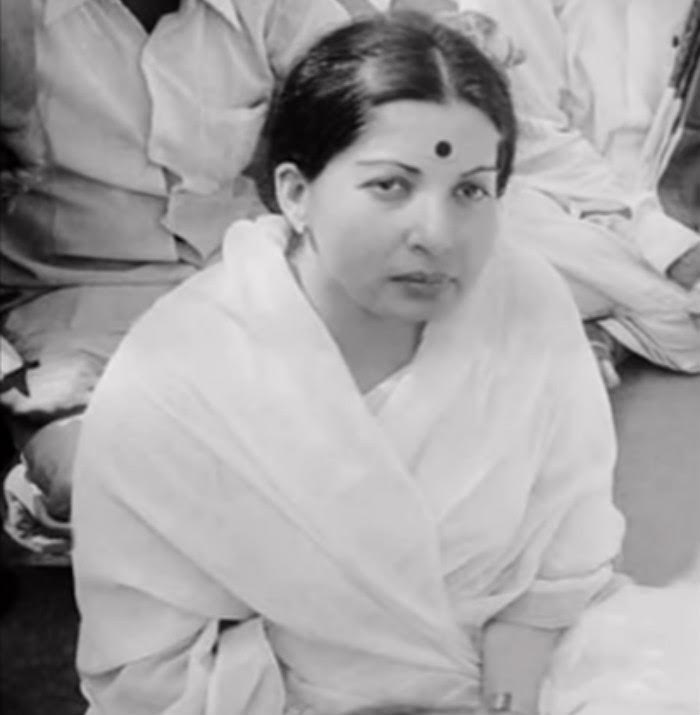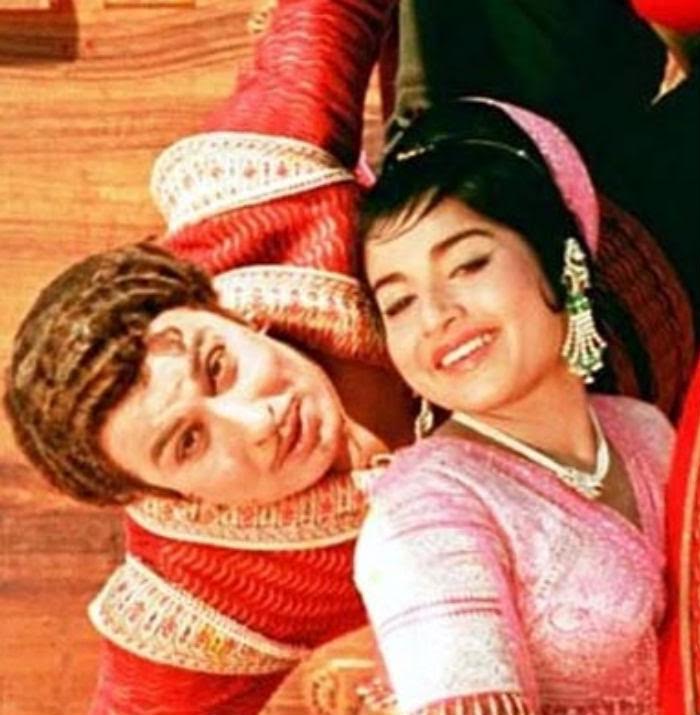UPDATE:
Later the evening that the earlier story was written, Jayalalithaa's death was confirmed. It is the end of an era for politics in Tamil Nadu.
Jayalalithaa’s failing health condition has sent shock waves in Tamil Nadu. But Amma’s followers are not giving up on the prayers for their determined leader with an iron fist to make a quick recovery. Bringing glamour to the dreary world of politics, Amma as she is known, has ruled with an iron fist and often displayed signs of authoritarianism

She grew up being multi-lingual, being fluent in languages, as a student. Hindi, English, Kannada, Tamil and Telugu, Jayalalitha and mastered the gift of fluent communication even winning the Gold State Award for topping the Std 10 examination in all of Tamil Nadu. From there, it was a carrier in acting that began with a part in an English play “Epistle” in 1961; and then armed with fair skin and looks –the requirements of the silver screen—she went on to act in over 140 films of which 60 were in Tamil.
J Jayalalithaa’s debut was in the Tamil film with Vennira Aadai in 1965. This was the first film to be rated ‘Adults Only’ since Marma Yogi got an A certificate in 1951. The irony was Jayalalitha could not watch her film being an underage. The Film Certification body was not too happy as she was the first Tamil actress to wear sleeveless blouses and even allowed herself to get suggestively drenched under a waterfall! What followed were a stream of successes movies starting with Venniradai in 1965, followed by Ayirathil Oruvan, Kudi Iruntha Kovil, Gallata Kalyanam, Adimai Penn, Oli Villaku and Deiva Magan. Jayalalithaa was one of the most prominent faces of the South film industry and bankable stars of the 1960s.

Jaya the Authoritarian Ruler
Among the more memorable lines that flowed from J. Jayalalithaa was this gem about the media in India: "The people of this country are illiterate. They don't read newspapers and don't care what the papers write."
Thirteen years ago in mid-November 2003, ensconced within the high security walls of her Poes Garden residence, the chief minister of Tamil Nadu must have quietly eaten her words. Using her brute majority, she got the Tamil Nadu Assembly to pass a resolution sentencing five senior editors of The Hindu and the editor of DMK newspaper Murasoli to 15 days in jail.
Their crime: The Hindu in April this year had published an editorial titled "Rising Intolerance" which had attacked Jayalalitha's authoritarian ways. The editor of the DMK mouthpiece was sentenced for merely reproducing a translation of The Hindu editorial in the Tamil newspaper. Following her deplorable words, on the evening of November 7, half an hour after the state Assembly passed the resolution, a police team stormed The Hindu office on Chennai's arterial Mount Road to arrest its Editor N. Ravi, Executive Editor Malini Parthasarathy, Bureau Chief V. Jayant, Special Correspondent Radha Venkatesan and Publisher S. Rangarajan. " It is not the privilege of the Assembly to protect the chief minister's reputation," he said. The Hindu, which moved the Supreme Court a day after the police came calling at its offices, obtained a stay on the arrests on November 10.
After appearing to be defiant initially – she filed fresh defamation cases against The Hindu even as the apex court granted the stay – Jayalalithaa softened up, saying her Government would fully comply with the court order. Evidently, she can scarcely afford to antagonise the court which is soon to decide on the TANSI land scam in which she is the main accused.
Jayalalithaa's dislike for the press has been part of parcel of her rule, a trait she shares with prime minister Narendra Modi. Soon after she came to power in May 2001, a TV reporter was arrested and 150 journalists protesting the arrest were kept in police custody for a day. The Hindu has faced 16 defamation cases, all filed since the AIADMK came to power. And so long as the privilege rights of the legislatures are not codified brute state power as displayed by Jayalalithaa can prove to be mightier than the pen.
Her misuse of power and position has also been consistently directed towards her critics. In August this year, the Supreme Court told Tamil Nadu Chief Minister J Jayalalithaa that as a public leader, she must learn to face criticism. The sharp rebuke came while the court was hearing a petition filed by DMDK chief Vijayakanth seeking dismissal of a defamation case filed against him by the state government. “No other state misuses the state machinery like the Tamil Nadu government. Defamation cases can’t be slapped for merely reporting on CM’s health condition,” the court was quoted saying.
In July 2016, the court had observed that defamation cases cannot be used as a political counter-weapon against critics of the government. It had further stayed the non-bailable warrants that were issued against Vijayakanth and his wife Premlata. The case against the couple was lodged by the Public Prosecutor of Tirupur district on the allegation that they made false remarks against the Chief Minister and criticised the working of the state government. Reportedly, 14 cases of defamation have been slapped against Vijayakanth.
Following close suit to the dangerous trends evident in the fashion in which the law enforcement agencies –police, federal agencies—have been misusing sedition laws after the Modi regime swept to power in May 2014 –the Tamil Nadu state police, under Jayalalitha, slapped sedition charges against six social activists and human rights defenders of ‘Makkal Adhikaram’ (People’s Rights), a social organisation in Tamil Nadu, for simply organising a meeting/conference to demand closure of State-run liquor outlets in Tamil Nadu. The activists were allegedly charged under sedition for making inflammatory speeches at the event held on February 14, 2016 at the Uzhavar Sandhai Ground in Tiruchirappalli over the issue of Tasmacliquor shops across the state of Tamilnadu. An appeal on the case has been issued by Human Right Defenders Alert-India (HRDA).
MGR the Mentor
It was the legendary film star turned astute politician, M. G. Ramachandran (simply MGR) who was J Jayalalithaa’s inspiration and thereafter her godfather. MGR founded Anna Dravida Munnetra Kazhagam (ADMK) and went on to become the Chief Minister of Tamil Nadu in 1977. MGR was the first film actor to become the CM of an Indian state. Jayalalithaa followed the footsteps of her guru to become successful actor turned politician.
J Jayalalithaa acted with MGR on several film projects. They gave a smash hit movie Ayirathil Oruvan in 1965. This pair delivered huge critically and commercially successful hits in the 60s like Thaikku Thalaimagan (1967), Kannan En Kadhalan(1968), Oli Vilakku (1968), Rahasya Police 115 (1968) and Mattukkara Velan (1969).
Jayalalithaa's Disproportionate Assets Case
Incumbent Chief Minister of Tamil Nadu, Jayaram Jayalalitha, was finally acquitted in the infamous 18-year-old disproportionate assets (amounting to Rs. 66.65 crore) and corruption case by the Karnataka High Court on 11 May 2015. A trial court had convicted and sentenced her to four years of jail as well as a fine of Rs. 100 crore on 27 September 2014. Jayalalitha filed an appeal challenging the decision in the Karnataka High Court. These charges were held “not sustainable” by the special bench of the Karnataka High Court. Earlier, the five-time Chief Minister of Tamil Nadu was held guilty by a special court in Bangalore in a disproportionate assets case and had to vacate her post as a consequence. The charges were levelled by Dr. Subramanian Swamy in 1996. She was convicted under IPC 109 and 120 (b) along with 13 of the Prevention of Corruption Act, 1988.
Earlier, in 2001, the Supreme Court today dealt a severe blow to the political career of the AIADMK chief, Ms. Jayalalithaa, by quashing her appointment as Chief Minister of Tamil Nadu by the then Governor, Ms. Fathima Beevi, on May 14.A five-judge Constitution Bench, in a unanimous verdict of 5-0, held “a person who is convicted for a criminal offence and sentenced to imprisonment for a period of not less than two years cannot be appointed the Chief Minister of a State under Article 164 (1) read with (4) and cannot continue to function as such.'' In effect, the court rejected the argument that a popular mandate – or the `will' of the people – could override the Constitution. The Bench observed that it was not impressed by the submission that the court should not issue a quo warranto as the six-month period, allowed by Article 164 (4), would expire in about two months and it was possible for Ms. Jayalalithaa to succeed in the criminal appeals (in the TANSI cases) filed by her in the Madras High Court. “We take the view that the appointment of a person to the office of Chief Minister who is not qualified to hold it should be struck down at the earliest.'' The Bench did not accept the contention that once a sentence was stayed by the High Court and an appeal was pending, the conviction would not operate and Ms. Jayalalithaa suffered no disqualification, and said “conviction and sentence it carries operate against the accused in all their rigour until set aside in appeal, and a disqualification that attaches to the conviction and sentence applies as well.''
Fifteen years later, the AIDMK supremo, obtained interim bail, extended over two periods, also in a corruption case where a lower court had convicted her in December 2014.
